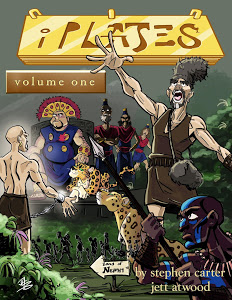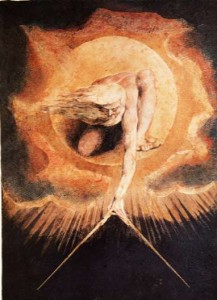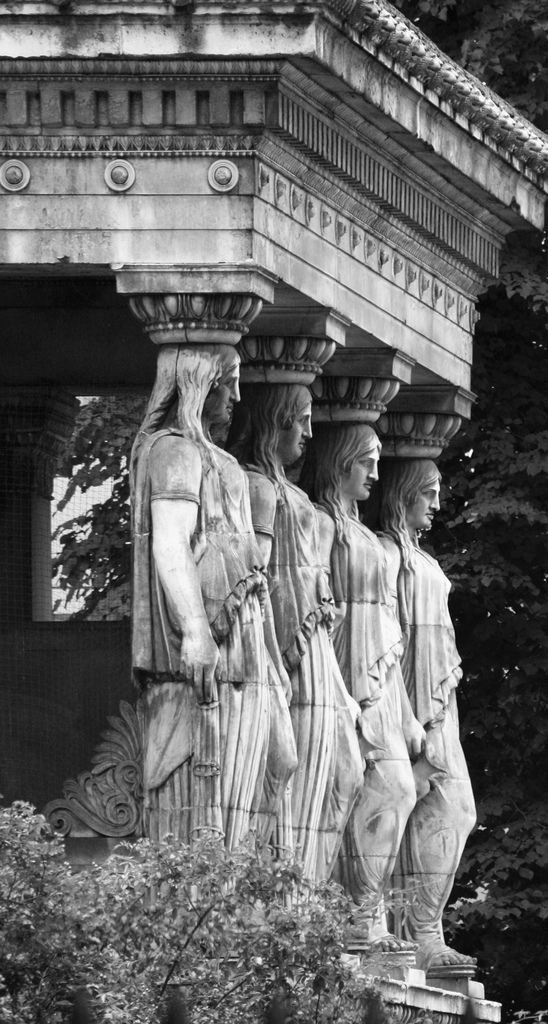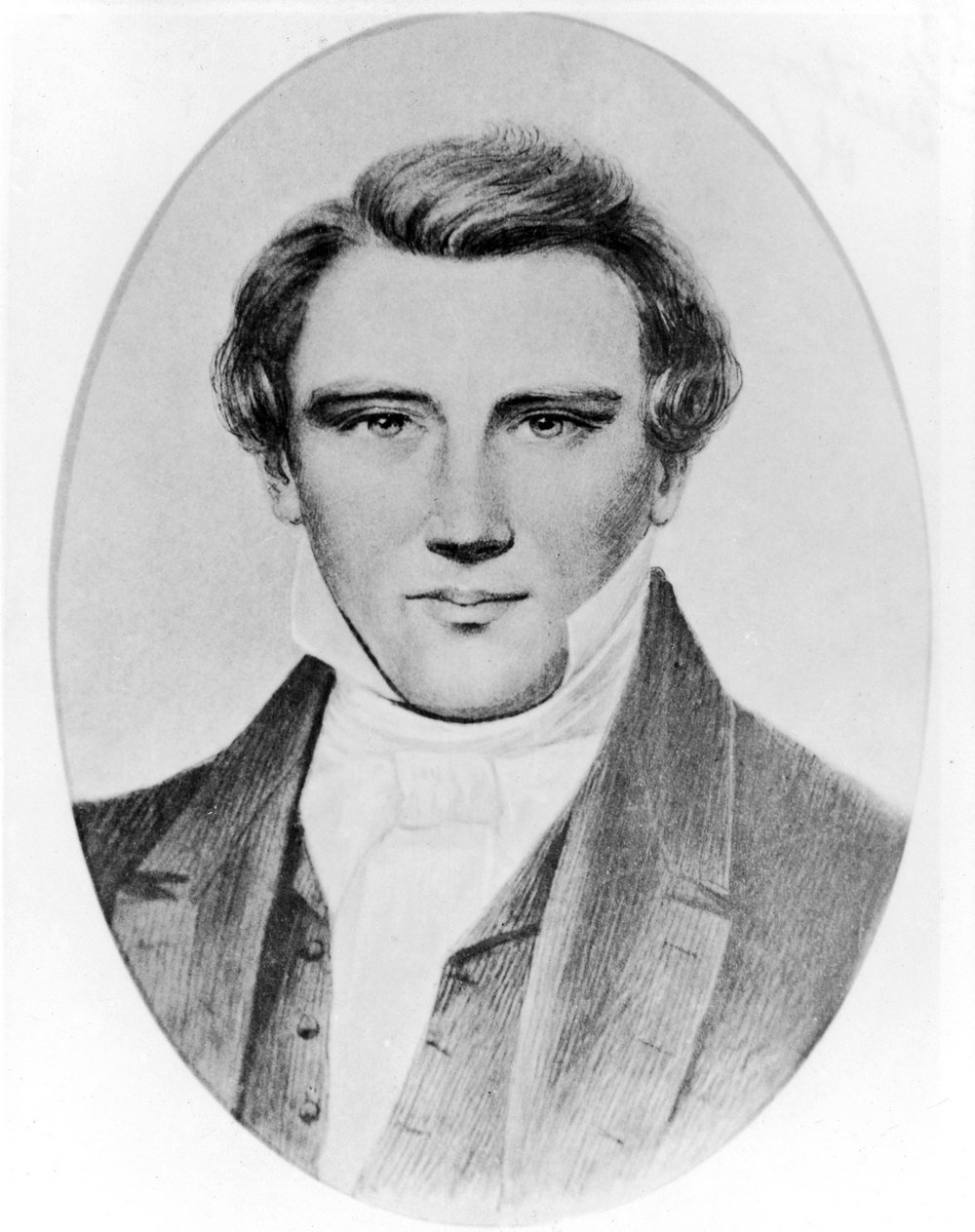-
•
•
15 responses
I agree with The God Who Weeps that our doctrine of pre-existence is crucial, but I disagree about why. Read More
-
•
•
As Mormon completes his own record in Mormon chapters 7, 8 and 9, he prophesies about the role that the Nephite records will have in the future, saying that the record will come forth in the latter days, in a day of great wickedness, and urging readers of the book to believe in Christ. This role of the Book of Mormon was a very common theme in Mormon poetry, including this poem, written under the pseudonym “Equator.” Read More
-
•
•
26 responses
I regret to inform you that Your Candidate is going to lose. Some tough days are ahead. I’m sorry. It will be tempting to blame Your Candidate for his loss, but the truth is that he actually did a pretty good job. The economy, world affairs, the weather – they just didn’t go his way. Still, he made the most of the hand he was dealt, gave some good speeches, got in some good lines in what were the best presidential debates in a long time. Your Candidate was the best candidate Your Party had, and he gave The Other… Read More
-
•
•
-
•
•
One response

I won’t lie, I was frightened going to the Democratic Republic of the Congo Read More
-
•
•
20 responses

With the election approaching on Tuesday, I’ve been racing to put together a rundown of the candidates who are Mormon around the country. I know that Kay Atkinson King has done an extensive series on BCC going over the congressional elections, but I think that my summary below has a few additional pieces of information, including both state level elections and information on a few candidates who aren’t actually Mormon but who have significant Mormon connections or were once Mormon — a status that we will probably see more in the future. Read More
-
•
•
12 responses
I agree with The God Who Weeps that God redeems our hungers and desires, but I disagree about how God does this. Read More
-
•
•
12 responses
I really enjoy Halloween. I’ve always liked dressing up and making costumes. Over the years, I’ve learned that the trick to costumes is not complete accuracy, but suggestion. Like a good suspense movie, an audience needs only to be directed. Then they create the full costume in their minds. So my pioneer costume, which I only wear in July, is a regular dress, late 90s cut, but paired with a bonnet and apron that I whipped up out of scrap fabric and a shawl, and it is surprisingly convincing. Pumpkin carving, too, is another ‘less is more’ type of enterprise.… Read More
-
•
•
40 responses
Maybe you’ve heard: Bloomberg News reports that Romney escaped taxation on some of his income by donating it to the Church, only that he donated less than he said he did, only that he didn’t have to donate as much as he said he would, or something like that. Confused? Fair enough. I’ll try to walk through what happened (though estate tax isn’t really my specialty, and I haven’t ever worked with a charitable remainder unitrust (“CRUT”). A CRUT is an irrevocable trust. What that means, essentially, is that it is a legal entity that an individual can form. As… Read More
-
•
•
13 responses
Since I live in NYC, I’ve been following the weather and news pretty closely from various sources. I left work early yesterday, and it was closed down today. All transit has been shut down, evacuations taking place, and the Ward/Stake communications network is in place. I live up a hill, so I’m not worried about flooding. I went for a short walk this morning to pick up a few more supplies, and the reactions vary broadly. Some places are boarded up and closed, others open like usual. Fewer people are out on the road, but I saw three runners in… Read More
-
•
•
Mormon, the book in the Book of Mormon written by its compiler, is perhaps the most depressing of the book of scripture. It might be subtitled ‘the Decline and Fall of Nephite Civilization.’ And its author was all but hopeless in his assessment. But unlike Gibbon’s perhaps better known description of decline and fall, Mormon also describes the future effects of his record, predicting that millions will be convinced to come to Christ by the story he tells. In the following poem, Parley P. Pratt also traces this same history, in part three of his poetic description of Christ’s ministry… Read More
-
•
•
3 responses
-
•
•
11 responses

I sat in a comfy chair downtown reading my iPad for two hours, and received $175 in Amazon credit for my troubles. That’s nice work, if you can get it. Even better is getting paid four figures to fly to France on a private G5 and take four naps a day for a week. (Yes, I’ve done that too, but napping on a rigorous schedule is much more difficult than it sounds.) Read More
-
•
•
19 responses
I”m late in updating my list of Mormons in professional football. Its not because last year’s post was hijacked by those talking about playing sports on Sunday. But it may be in part because I’ve focused more on baseball recently. But, I’ve finally got my act together, and here’s the current list, along with the now due list of Mormons in professional basketball — including an additional Mormon playing in the NBA preseason Read More
-
•
•
15 responses
To throw another idea in the faith vs. works debate: “Faith is not equivalent to belief or certainty. Faith has more to do with commitment. Faith is fidelity.” Times and Seasons is a place that respects the faith of Latter-day Saints. As someone who often struggles with the faith of belief, I cling to the faith of fidelity. I want to keep the faith in this church that I love. Some things I don’t know, and some I only hope to believe, but I am committed by covenant and the strength of my faith to act as though the teachings… Read More
-
•
•
20 responses
I agree with The God Who Weeps that faith is a decision, but I disagree about the site of this decision. Read More
-
•
•
12 responses

I love stories. A narrative strikes me as the most fundamental way of ideas with other people. And by ideas, I mean not only the bare events of the narrative, but also abstract concepts, morals, and emotional truths. It makes sense to me that our basic scriptural texts have strong narratives. The Old Testament is a collection of stories, with the consequences of one generation’s choices setting the stage for the actions of the next. The Book of Mormon also has very strong narratives. Other classic stories that we are familiar with, we feel free to reimagine. We update fairy… Read More
-
•
•
5 responses
Defamed and exiled, Silas Marner loses his native faith. Now he’s got nothing to prop up his soul. Read More
-
•
•
In the final minutes of his visit with the Nephites (3 Nephi 27), Christ makes clear that the church established for the Nephites must bear his name and teach his gospel. He even specifies elements of his gospel: the atonement and resurrection, the final judgment, repentance, baptism, faith in Jesus Christ, the gift of the Holy Ghost and enduring to the end. I don’t think it would be very hard to connect any Mormon doctrine to this list. Read More
-
•
•
9 responses
-
•
•
7 responses

In linguistics, a word that is only attested once in a text is called a hapax legomenon. In older texts (like Hebrew and Mayan texts), these hapaxes can be especially hard to decipher because that single attestation may be the word’s only occurrence anywhere. Lacking context, it’s hard to tell what a hapax means. Read More
-
•
•
22 responses

In May I asked readers here to look at those who had made the news during the first part of the year and suggest who among them should be considered for “Mormon of the Year.” The theory is that looking at the question periodically during the year means that we will include those who have been forgotten by the end of the year. This way, we avoid a bias towards recent events. So, I’d like to suggest that we look at who has made the news since April and suggest possible candidates for “Mormon of the Year.” Read More
-
•
•
12 responses

I’m a big fan of religious music. Some, at least. Read More
-
•
•
One response
The Annual Summer Seminar on Mormon Culture “Workings of the Spirit and Works of the Priesthood: Gifts and Ordinances in LDS Thought and Practice.” Brigham Young University June 3 – July 12, 2013 In the summer of 2013, the Neal A Maxwell Institute at Brigham Young University, with support from the Mormon Scholars Foundation and the Jack and Mary Lois Wheatley Institution, will sponsor a summer seminar for graduate students and junior faculty on “Workings of the Spirit and Works of the Priesthood: Gifts and Ordinances in LDS Thought and Practice.” The seminar will be held on the BYU campus… Read More
-
•
•
38 responses
Women can go on missions, if they want to. Now that they can go at 19, some will go who may not have wanted it quite enough to wait until they turned 21. But it is still not the same as for men, who have a clear expectation and strong social pressure to serve missions sometime after they turn 18. Girls in the church hit this idea, “they can do it if they want to” quite often. Starting at age 8, when American boys enter the officially sanctioned Church version of Cub Scouts, the segregation begins. The boys meet weekly,… Read More
-
•
•
66 responses

Since polygamy will keep rearing its ugly head every time we try to talk about Heavenly Mother, I’ve given it its very own post, as promised. Polygamy occupies an uneasy place in the psyche of many Mormons today. Although the practice was abandoned by the church in the early 20th century, it is exotic and taboo enough that it continues to be one of the public’s primary associations with Mormons. However, even within the church, the idea of polygamy (and specifically, polygyny) continues to complicate theology and life. Today I’d like to take a deeply personal look at some of the fruits… Read More
-
•
•
2 responses

Poetry by Joseph Smith? That is certainly not what Joseph Smith is known for, nor is it often claimed that he was a poet in all the writing and studies made about him. [Orson F. Whitney is the exception that comes to mind.] But the following poem, when published in 1843, carried his byline when it was published. As a paraphrase of D&C 76, this poem fits well, I think with the Gospel Doctrine Book of Mormon lesson #41. As Christ teaches to the Nephites in this lesson (3 Nephi 22-26) he focuses on making sure that their scriptural cannon… Read More
-
•
•
8 responses
-
•
•
2 responses
AAR Pacific Northwest Region AAR/SBL/ASOR Regional Meeting Seattle University Seattle, Washington May 3-5, 2013 SPECIAL TOPICS: MORMON STUDIES Read More
-
•
•
CALL FOR PAPERS – OCTOBER 15: THE FOURTH BIENNIAL FAITH AND KNOWLEDGE CONFERENCE WESLEY THEOLOGICAL SEMINARY WASHINGTON, D. C. FEBRUARY 22–23, 2013 Read More
